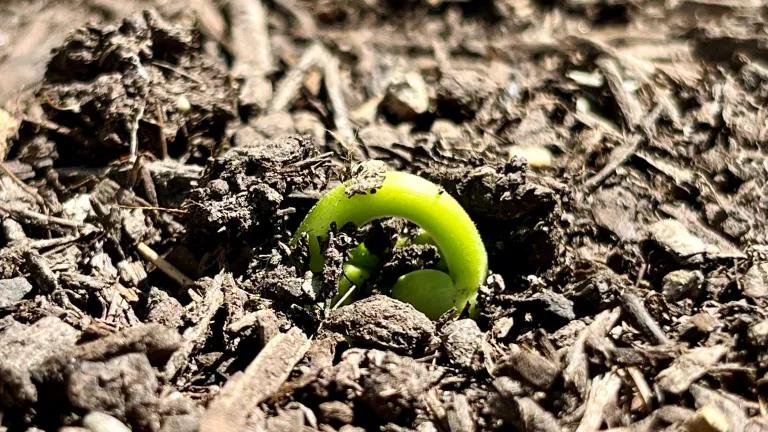Underinvested Communities Lead to Food Injustices
Mireya Arana, a rising senior at UC Merced, reflects on what can be done to address the food inaccessibility she sees in her hometown of Winterhaven, California.

Ocean-to-Ocean bridge that connects Winterhaven to Yuma
While pursuing my bachelor's degree in Environmental System Sciences at the University of California, Merced, I had the opportunity to acquire knowledge on different arrays of topics. Particularly in my Writing to Save the Planet class, which taught me about food insecurity and environmental racism. Using the insights gained in my classes, I pieced together the injustices prevalent in my community. As a resident of Winterhaven California, I have witnessed the food injustices plaguing my community, and am writing on behalf of my experiences to educate the public on issues in Winterhaven.
About Winterhaven, California
Winterhaven is the southeasternmost settlement in California, straddling Imperial County and the Fort Yuma Quechan Indian Reservation. The Fort Yuma Quechan Indian Reservation borders the states of Arizona, California, and Baja California Mexico.
- Winterhaven had a total population of 390 people (2022)
- Per capita income in Winterhaven was $6,948 (2018)

Winterhaven has one of the highest poverty rates in the nation, with about 55 percent of the population living below the federal poverty line. It’s also a car-oriented town. Due to the size and population density, there is little support for a public transit system. Rural roads and long distances between houses discourage walking and bicycling. Residents of Winterhaven often travel out of town for services, such as shopping and doctor appointments.
Many residents of Winterhaven are familiar with the food distributions that happen on the first Wednesday of every month at San Pasqual Valley Unified School district. As a community food bank volunteer during my last two years of high school at San Pasqual Valley High School, I witnessed the disparities in my community and how the food bank distribution was a primary source of food for many families. Home deliveries to the surrounding houses of Winterhaven were also available for people unable to make it to the school.
Sacrifices are constantly made to go to the nearest grocery store in Yuma. The Ocean-to-Ocean bridge connects Winterhaven to Yuma, where you can find grocery stores to provide healthy meals. Convenience stores like Jimmies or Pipas in Winterhaven may have some wilted veggies–if you’re lucky. These stores are full of unhealthy snacks leaving the community members with no other option than to consume these processed foods, leading to health and mental health issues.

The lack of adequate healthy foods can impact a person's ability to live a long fulfilling life. Poor nutrition contributes to stress, tiredness, and the inability to work at one's full potential. Balanced meals rich in vitamins and minerals are a fundamental human right–it is inexcusable and a harsh critique of our society that residents of the wealthiest state in the U.S. continue to be denied this right. An unhealthy diet consisting of high levels of added sugars, sodium, and fat leads to obesity, heart disease, and high blood pressure. The leading cause of death among Native Americans and Latinxs is heart disease, and with a large population of both on the Fort Yuma reservation in Winterhaven, food inaccessibility contributes to these unfortunate deaths.
Considerations
More can and must be done to devise equitable distribution of food in Winterhaven, but before solutions are considered, other factors need to be discussed:
- Transportation and access: How will community members get to these places where food is offered?
- Where stores are placed: Thoughtful consideration on where stores are placed to allow even distribution for the whole community.
- Affordable fresh food options: Inexpensive fresh produce must be offered to ensure that the product is bought. Programs like New Mexico’s Double Up Food Bucks could benefit residents.
Moving forward, it is a fundamental right that the residents of Winterhaven have equitable access to healthy, affordable food. As I describe and enrich the community with the challenges they must overcome to better the food system in Winterhaven, policymakers must work on investing in these issues with the residents and consider the factors listed above to design policy solutions. It is a human right to nourish our bodies and minds with food and food for thought.


